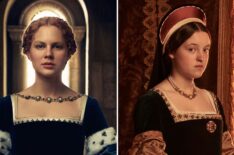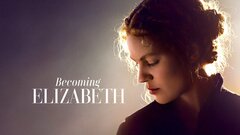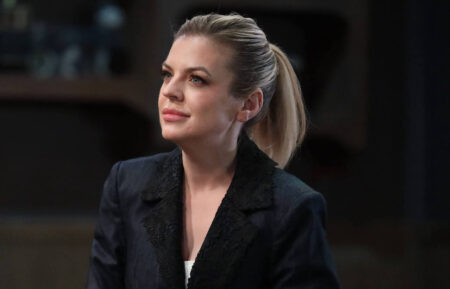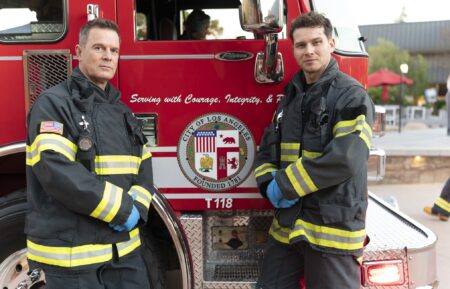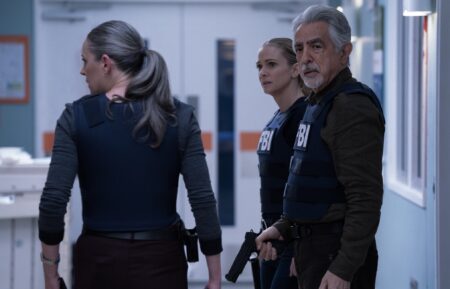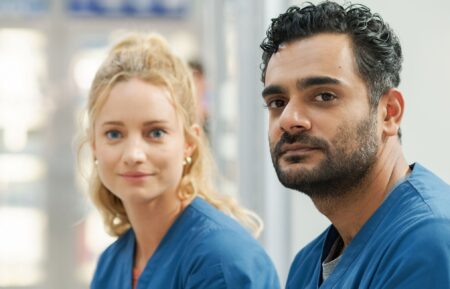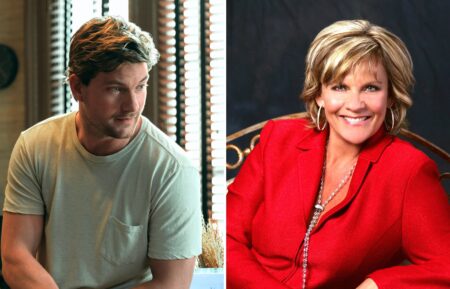‘Becoming Elizabeth’ Creator on Season 1 Finale, Elizabeth’s ‘Hideous Learning Curve’ & More
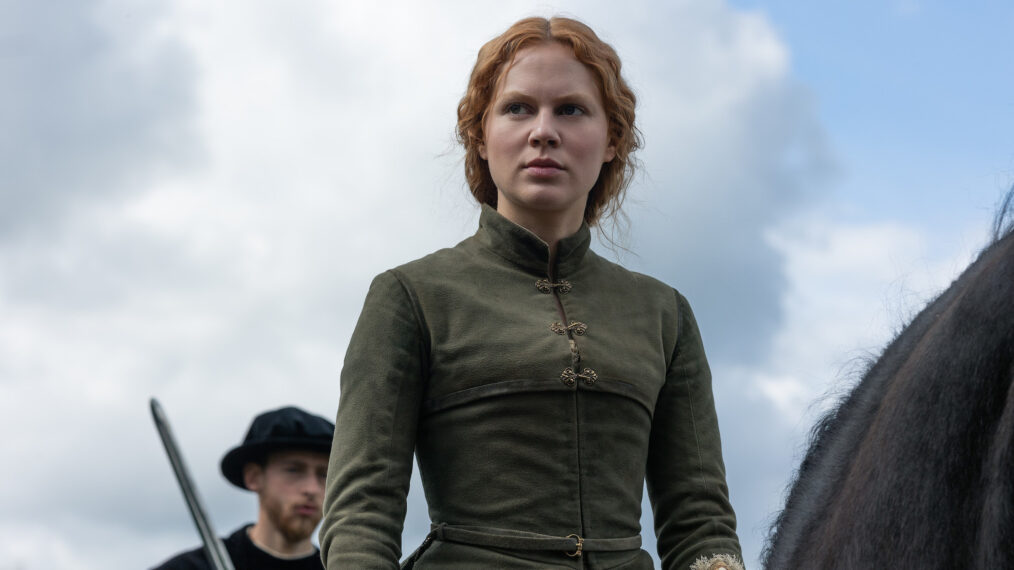
Q&A
[Warning: The following contains MAJOR spoilers for the Becoming Elizabeth Season 1 finale, “To Death We Must Stoop.”]
Becoming Elizabeth Season 1 delivered a fresh take on the Tudor era. Where much of that history is romanticized in media and the violence of the time is downplayed, the Starz drama — starring Alicia von Rittberg as Elizabeth I in her teen years — looks the gruesome reality dead-on to tell the tale of how one of England’s longest-reining monarchs became the cautious, calculating survival expert she was.
Much of Season 1 focused on the grooming relationship between Elizabeth and Sir Thomas Seymour (Tom Cullen), uncle to Elizabeth’s younger half-brother, King Edward IV (Oliver Zetterström), and husband to Catherine Parr (Jessica Raine), King Henry VIII’s last wife. Creator Anya Reiss spoke with TV Insider about Becoming Elizabeth Season 1 and the tumultuous finale, saying Elizabeth’s story in this show is “meant to be what makes her cautious.”
Here, Reiss breaks down the goals of the series, explaining Mary’s (Romola Garai) arc, all of the brutal, true to history deaths (bye, Thomas!), and plans for a Season 2.
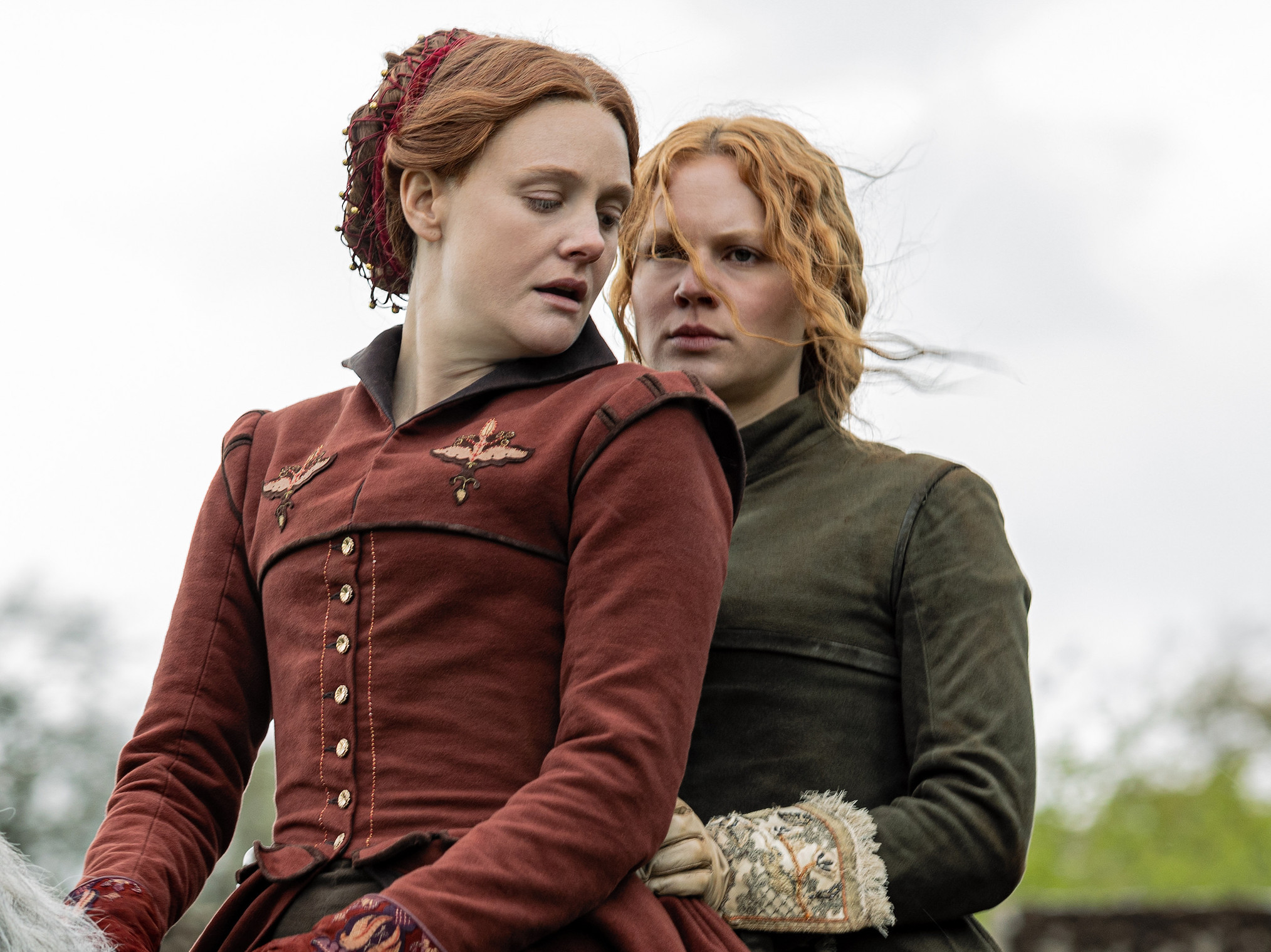
Starz
How did you see Elizabeth and Mary’s arcs in Season 1?
Anya Reiss: Elizabeth’s is definitely a hideous learning curve. One of the things I’ve seen people saying is, “Elizabeth was more cautious than that.” This is meant to be what makes her cautious. This is where she learns the “keep your mouth shut, keep watching. Don’t pick a side. Any decision you make could utterly f**k you.” She sees how quickly the wind turns for everyone else, even when they make seemingly a right decision. I think for me, that cautiousness and that adultness was probably more how I thought of it than, “Oh, she was really naïve, and then she gets clever.” I think she just thought, “I’m going to be a political player and make these moves. I know what I’m doing.” And actually, it’s about “the smartest person keeps their mouth shut.” That was, for me, her lesson.
Mary, I think is becoming more self-sufficient and suspicious of people. She was a little bit more trusting at the start of the show, and then just slowly seeing, “Oh my god, everyone closes the walls in on me again and again. I can’t trust people; no one’s really got my back other than me.” I don’t think I’ve left her ruthless, because she’s not quite there yet, but a much more grown up, determined, and ambitious version. It’s also the naked ambition of it, and her going, “No, no, this country’s actually mine. And I don’t just care about surviving.” She’s one of the few people who evolves past just wanting to stay alive. She evolves to, “I want my faith, and I want my country, and I don’t actually care if I lose my life in the process of that.”
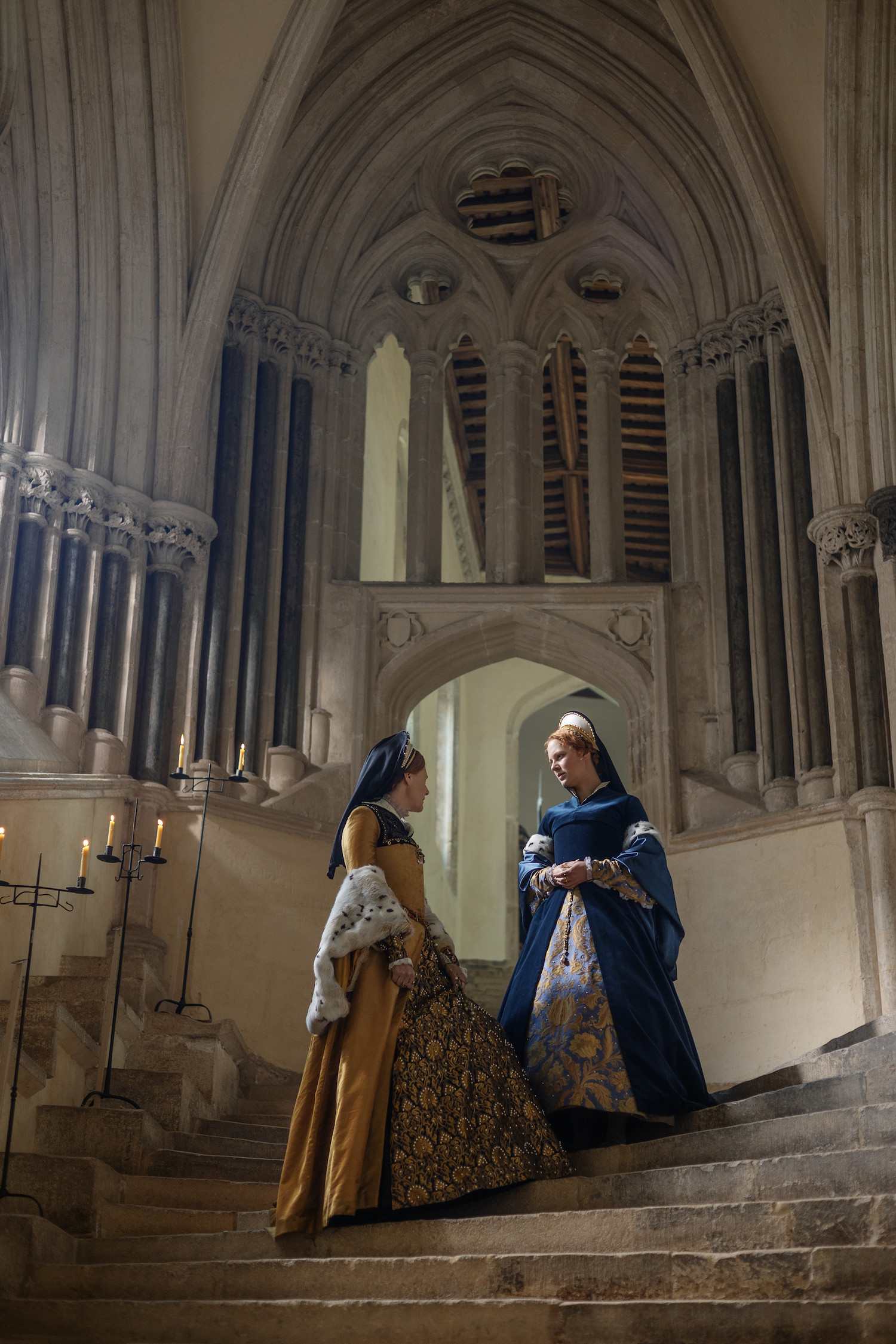
Starz
I loved Mary and Elizabeth’s final scene, where Mary admits she has no love for her sister and Elizabeth makes the comment about womanhood not protecting women. The way the women in this show are written feels very different. Was that intentional?
I was trying to find the real. It was always really true for me, the Mary and Elizabeth thing: really trying to love each other, but can’t help not loving each other. They had very awful lives, and they did pretty awful things. There’s going to be some harsh truths in there, and you can’t wipe them away by being like, “Oh, they didn’t mean it,” and “they did love this person,” and “they didn’t want that.”
I wanted to treat the women how we treat the men, and if that presents them in a fresh way, maybe it does. [We were] trying to treat them thinking women were allowed to say all the same things a man could, and I would treat their emotions in the same way. There’s a lot of smoothing them out, or trying to make women likable, or trying to make this bit sympathetic, or find this reason that they did that. I’m not doing that. There’s no point of me going, “Ah, but people might not like him if he says that, so he shouldn’t really say that.” I’ve never thought that for male characters, so I suppose it was just removing that for a female character as well.
They’re all politically savvy and good at surviving, but the after effects are different for all of them depending on their position. It was the most captivating aspect of the show, to me.
Sometimes I do think, “Maybe they are too good at surviving,” but the thing is, they’re only in the show because they survive. The ones that aren’t good at this are dead. That’s how quickly you could lose your life in that world. For instance, like with Henry Grey [Leo Bill], it was really important to me to have that switch in Episode 6 where you’re like, “You’re kind of smart! You do know what you’re doing,” having had him be a bit of a joke all the way through. Because of course he’s smart, otherwise he wouldn’t have made it.
That’s another thing people often do to this time: dividing them easily into this sorting filter, like here are the dumb ones, here are the clever ones. Actually, there’s something that’s binding them together, and that’s that they all really want to be alive.
And lot of the times, it’s just luck. John Dudley [Jamie Parker] is really lucky Edward didn’t die. It’s either the tide is in your favor or not, and then you have to ride the wave of it.
And that just shows the meaninglessness of it. People don’t have grand plans and schemes, and if they do, they go very wrong. It’s just messy and meaningless.
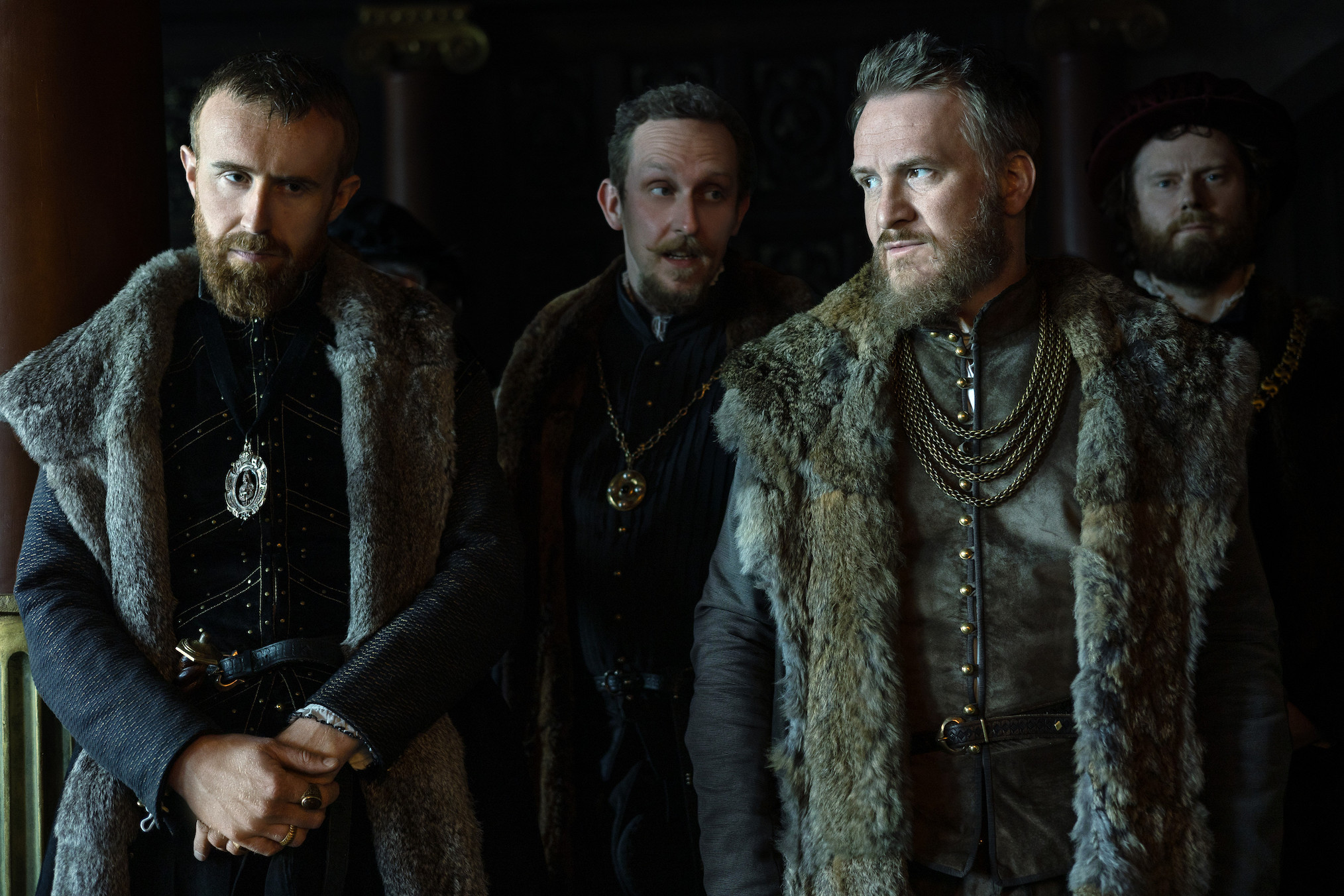
Starz
This series makes me understand Elizabeth as a person so much more. To you, why are the Tudors such a good subject for storytelling? How are their stories relevant for modern times?
I’m not a big period history fan. Hearing this story, I saw the relevance. I tried to think of it as instead of a different time, it’s like a different culture. It’s kind of like, “Oh, it’s that guy, that’s my ex-boss on EastEnders, if only he had been running a country and his brother was trying to murder someone.” I saw them as realer people than I think I allowed myself to think of people from the past to be. It was my own journey of finding it relevant, which I suppose I tried to reflect in it.
I think we get so caught on how different that world was rather than how similar that world was, ’cause actually, looking at the U.K. government right now, there’s a lot of people that are related, that are very powerful, that all their money is tied into each other, they can’t quite escape it. They’ve had affairs that they have to keep quiet, they’ve had to compromise their morality in order to stay safe. They’re not killing each other, but other than that, [the Tudor era in Becoming Elizabeth] is just a more heightened, in a way more brutally honest version of what’s still going on.
And the attitude toward women hasn’t actually changed as much as you’d like it to. How do we look at this time and have the arrogance to go, “Well, that was back then”? It’s really very similar. The ambition was to draw that stuff out.
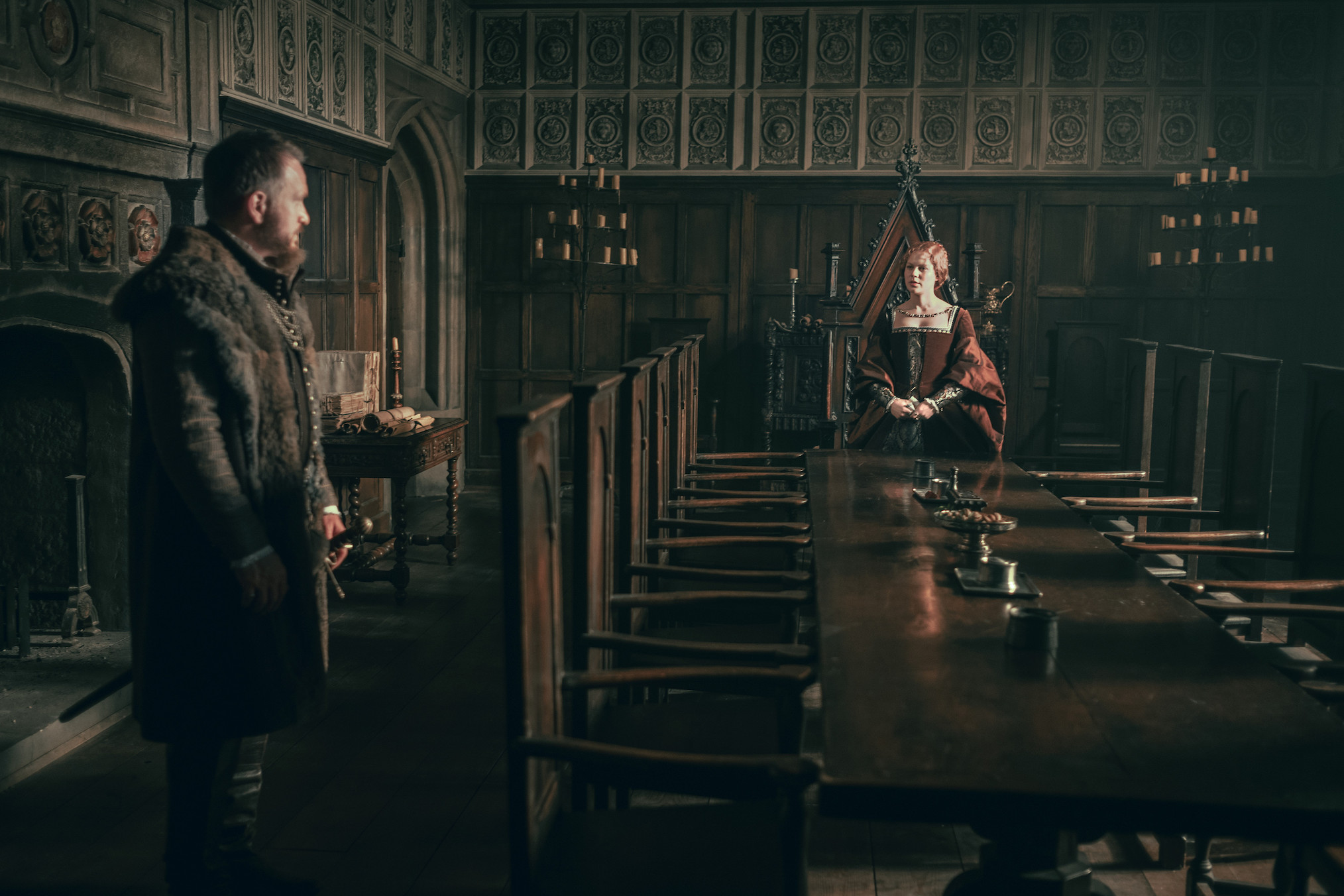
Starz
It’s about how small and personal and private a lot of these decisions were, which happened to have these ripple-out effects which change the world. Rather than acting like “important people in important rooms made important decisions for reasons that we don’t understand, but of course, that decision needed to be made,” it’s actually that Somerset [John Heffernan] was scrambling because his brother had just done something mental.
Introducing that kind of element to this kind of story, I suddenly felt if we look at the world like that, the world makes more sense than somebody sweeping down a corridor in a pretty dress.
I’m so glad Thomas Seymour’s story doesn’t continue in this. Was it important to you to get his story done quickly?
I would’ve struggled to stretch it on past this, because I think it’s a very particular story we’re telling. The story of Elizabeth I’s life isn’t she got groomed and that’s it, but I feel it’s a really central, important founding stone of what you understand the next stuff to be. It was always going to live in a one-season arc. The last two episodes are much more about the effects of it rather than continuing that abuse.
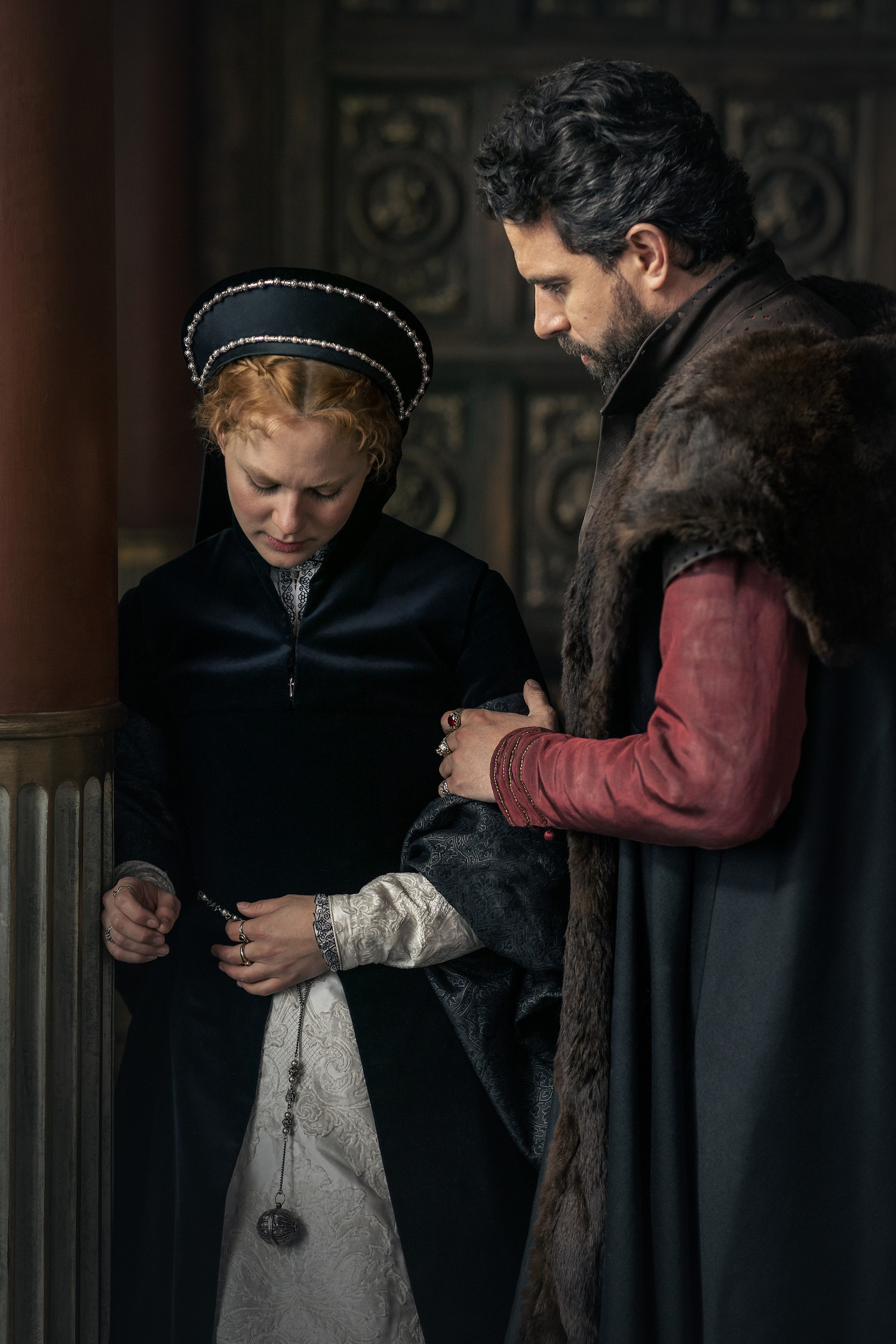
Starz
Thomas Seymour and the Catholic priest’s deaths were particularly gruesome, both in watching them and in the responses from other characters. What message were you trying to convey through those moments?
The Thomas one, there is some truth in that. It did take two blows of the ax to kill him, and there’s a fight on the stand where his servant betrayed him about the letter in his shoe. We do a lot of animal cruelty as well in this show. It’s a really brutal time, and there’s something in not only being interested in human decisions and finding the humanity in them, but also if you’re going to find the humanity, you’ve got to show the inhumanity.
If you are someone who ordered someone to burn to death, let’s sit in that decision. With Thomas, yeah, Somerset did order his brother to die, and that’s what it looks like when you’re killing a man by taking his head off. Even with the animal cruelty stuff, it was an early decision we made that we didn’t want to be a show that looks away when something gets bad. We want to be the kind of show that zooms in and is like “this is what that means,” ’cause there’s version of honesty and truth that lives in doing that.
There’s an ethos running through this show which is me just going, “We’re the bad guys, British history. None of this is good.” There is a romanticization of this period, and it is done in this, “Henry VIII was bad, and so these people were good” way. They’re all bad! They’re all British people running the country. They aren’t good people.
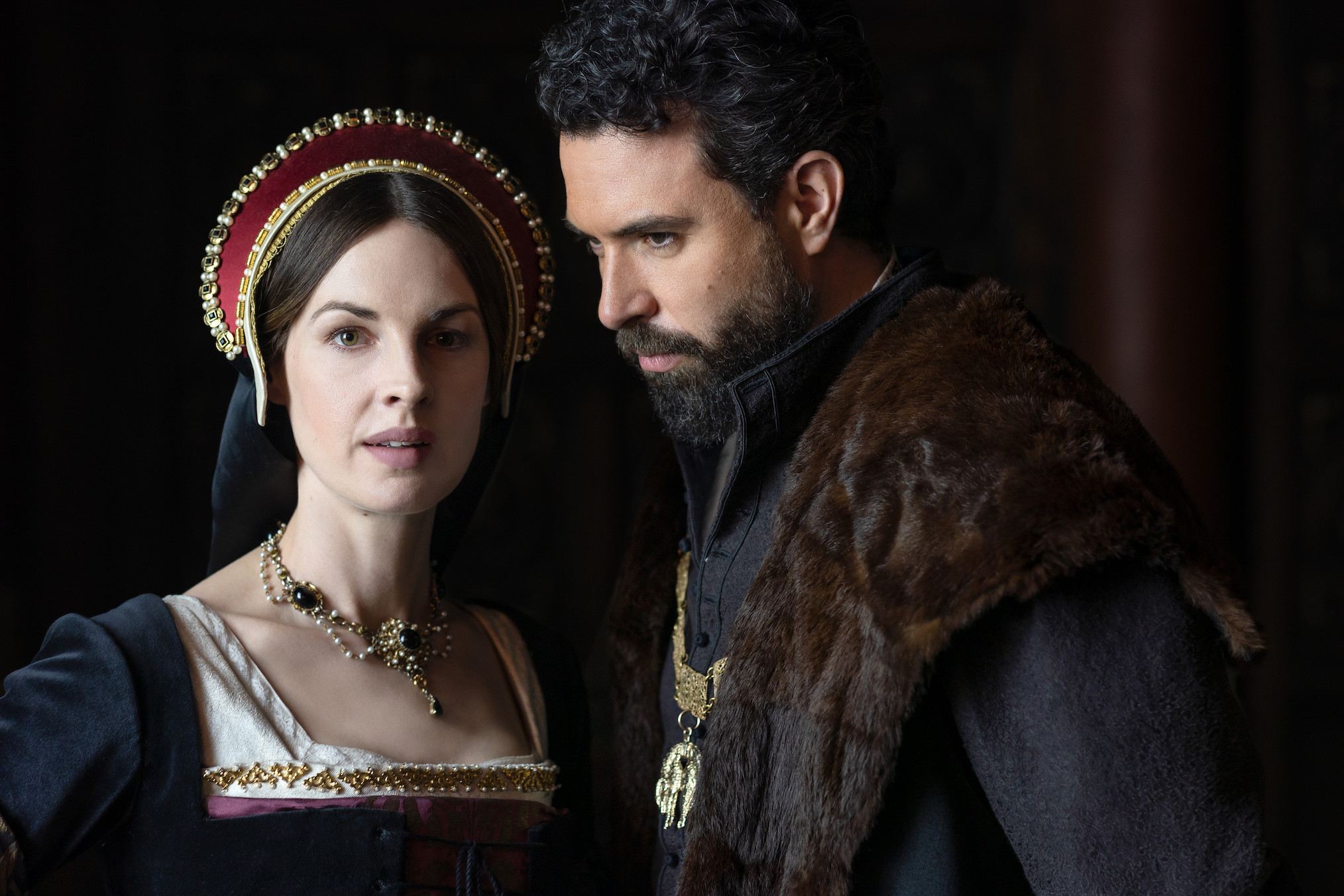
Starz
Do you have a favorite scene or line from Season 1?
Catherine’s worst hangover day, which goes from the privy council when Somerset loses his mind, to her confronting Elizabeth, to her confronting Tom. Apart from anything else, the acting is amazing. And it is my favorite moment in the show when Tom goes, “We’re not going to have a performance over last night,” and she goes, “Yes, we f***ing are.”
I found it so hard to write him doing this awful, nasty gaslighting and sliding around and getting away with it, and I think it’s something I can really recognize as a woman when a man goes, “Oh god, are you going to make a big fuss now?” And I just really love to have that full stop of, “Yeah, yeah. I am.” It felt it was the only time I could realistically put the power back in a woman’s hands and really let her cut her path through that.
Alicia’s acting in the last half of the season, every time she enters a room, you can see in her face that she’s analyzing every single beat that’s happening in there. I thought that was smart acting.
That’s the tail-end of abuse, isn’t it? If you’ve been in an abusive situation, every situation you walk into, you game-plan your way out. You’re constantly managing it.
What can you share about a possible Season 2?
We have a plan. Edward’s not even dead, so we have a lot of story, a lot of room. I’m genuinely devastated that I’ve lost some of my [characters]. I went to write a scene without Somerset, and I was like, “How?” But I’m really excited about the room that opens up for us and opening up peoples’ families and seeing a little bit more of their home lives.
Becoming Elizabeth, Season 1, Streaming Now, Starz

